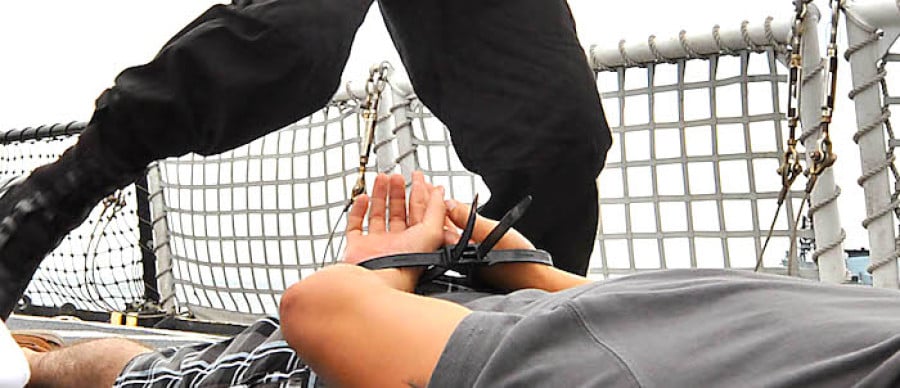Exactly who is responsible for combatting match fixing?

It’s a constant stream of debate: where does responsibility lie for preventing and investigating match fixing and corruption in sport?
Should it be the responsibility of international and national governing bodies, the organisations that typically have a direct contractual link with the athletes themselves, the targets of corrupt activity?
Or should executive agencies (and INTERPOL at an international level) bear the brunt of the responsibility for weeding out criminal rings and corrupt players?
Such agencies usually have the most powerful resources available to them (certainly in a non-financial sense) and the knowledge and expertise of investigating and prosecuting criminal activity. But do they need specific legislation to aid their investigations?
Others suggest that the bookmaking industry should take a leading role in the fight to combat match-fixing. After all, it is the bookmaking industry that, of all the players concerned, has the most direct interface with the match-fixers themselves. The industry also derives revenue from illegal betting (albeit not deliberately, of course) and is, conversely, at serious financial risk from rigged bets.
The structure of the sporting sector, just like many others, means that it’s not necessarily appropriate for a single body or entity to take charge of the problem. Some suggest therefore that a new body, similar to the World Anti-Doping Agency, should be established to combat match fixing and corruption in sport. A great idea, but one that leaves the pertinent question of funding unanswered.
Clearly, there’s no easy solution to the problem.
How are match fixing cases being dealt with in the UK?
Recent developments in the UK might leave some to conclude that the current ad-hoc approach is coping adequately with the problem.
Match fixing in football: Sankaran and Ganeshan
On 17 June 2014, Chann Sankaran and Krishna Ganeshan (both Singaporean) were convicted at Birmingham Crown Court of conspiracy to commit bribery.1 The convictions followed a high profile investigation into match fixing in the lower leagues of English football (specifically matches in League Two and Conference South), and could land the pair with fines and terms of imprisonment of up to 10 years.2
Interestingly, the convictions, pursuant to sections 1 and 2 of the Bribery Act 2010, were made under legislation not specifically aimed at match fixing in sport.3 If the Bribery Act is sufficient to deal with this instance of match fixing (it being a classic case of a ring leader paying a player to influence the outcome of a match so as to allow the ring leader to place a bet on the outcome of the game) then it is questionable whether specific legislation is needed at all.
To continue reading or watching login or register here
Already a member? Sign in
Get access to all of the expert analysis and commentary at LawInSport including articles, webinars, conference videos and podcast transcripts. Find out more here.
- Tags: Anti-Corruption and Security Unit (ACSU) | Bribery Act 2010 | Convention on the Manipulation of Sports Competitions | Cricket | Criminal Law | England and Wales Cricket Board (ECB) | Football | International Cricket Council (ICC) | INTERPOL | Match-Fixing | National Crime Agency | Remote Gambling Association (RGA) | Singapore | The Council of Europe (CoE) | The FA | United Kingdom (UK)
Related Articles
- Match-fixing update: FA's tough new betting laws and Sportradar expand Fraud Detection System with CONCACAF
- Match-fixing update: $390m betting syndicate broken in Korea and UK Gambling Commission teams-up with Crimestoppers
- Match-Fixing Update: IOC allocate $10mn to fight illegal betting and India's CBI establish Sports Integrity Unit
- Vietnam pledges to clean up V-league and Soccerex Global Convention host match-fixing panel
Written by
Thomas Barnard
Tom is a Senior Associate Solicitor specialising in commercial litigation and sports law. He acts for a wide variety of high-profile athletes, including cricketers, footballers, gymnasts and cyclists.
Hannah Clipston
Hannah is a partner specialising in resolving disputes for companies in the leisure and travel industry including Greenwich Leisure Limited, Nuffield Health and All Leisure Plc. She trained and worked in a City firm for 5 years and her practice covers High Court litigation, arbitration and mediation. Hannah also heads up the firm’s Sport and Leisure sector group.





